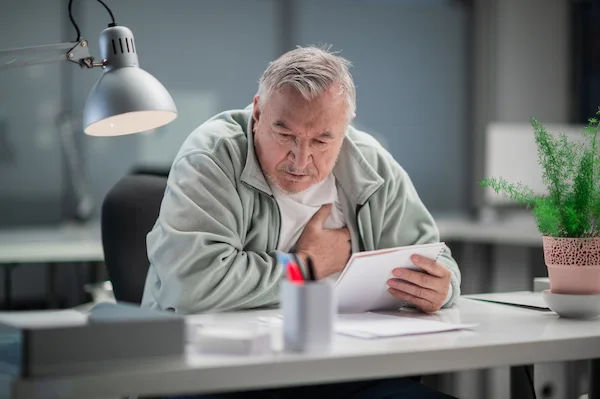- male
- 60 Years
- 31/03/2021
What test shows blocked arteries in the heart?
Answered by 1 Apollo Doctors
The most accurate method to detect blocked arteries remains an invasive test called cardiac angiography, which requires a catheter to be threaded into heart vessels. But the signs of blocked arteries may also be seen on an ECG.
Dr. Shubham Suggests...
Consult a Cardiologist
Answered 04/07/2025
0
0

More Cardiology Health Queries
View allI've been dealing with pain in my left hand and left chest even though my 2D echo, TMT, and chest X-ray all came back normal. It's been a couple of months, and I've also got these gaustic issues. I'm taking razol for it, but I'm wondering if you think I should get any more tests done. Could there be something we're missing?
Given your normal 2D echo, TMT, and chest X-ray, yet persistent left hand and chest pains, it is possible that your symptoms are related to gastrointestinal issues, especially since you have been experiencing gastric problems for the past two months and are currently taking Razo-L (rabeprazole). Gastric issues, including acid reflux, can sometimes cause chest pain that mimics heart-related pain. While your current tests are reassuring, if your symptoms persist, it may be helpful to undergo further evaluation such as an upper gastrointestinal (GI) endoscopy to assess for conditions like gastroesophageal reflux disease (GERD) or peptic ulcers. Additionally, consider consulting a gastroenterologist to further explore and manage your gastric symptoms.
Answered by 1 Apollo Doctors
I'm really worried about some recent health reports I've got. My TSH levels were high at 10.3, so my doctor increased my thyroid medication from 100mg to 125mg. Then after about 25 days, my TSH dropped to 0.70, and I was advised to cut down the medication to 75mg. I'm also confused because my TMT test came back positive for inducible myocardial ischemia, but my ECG and echocardiography were normal. The doctor is now suggesting I go for an angiogram. I'm really anxious about whether these thyroid level changes could be affecting my TMT results. Should I be rushing into getting the angiogram, and is there a real chance of having heart issues even though the ECG and echo were normal? Any advice would be really appreciated.
Yes its is due to fluctating tsh levels. U may repeat angio after 6 months.
Answered by 1 Apollo Doctors
I got an ECG done yesterday and it shows a slight ST depression in V3. Should I be concerned about this? I've been feeling a bit uncomfortable on the extreme left side of my chest, which is why I went for the ECG in the first place. There aren't any other pains or symptoms bothering me. By the way, I took the test about 40 minutes after finishing a workout at the gym - would that have any impact on the results?
Slight ST depression on an ECG can sometimes be a normal variant, especially if you have no other symptoms. However, given your symptoms of chest discomfort and the timing of the ECG after a workout, it is important to rule out any cardiac issues. I recommend you take a low dose of Aspirin 75mg for now to prevent any clot formation and consult a cardiologist for further evaluation and management.
Answered by 1 Apollo Doctors
Disclaimer: Answers on Apollo 247 are not intended to replace your doctor advice. Always seek help of a professional doctor in case of an medical emergency or ailment.



_0.webp)
